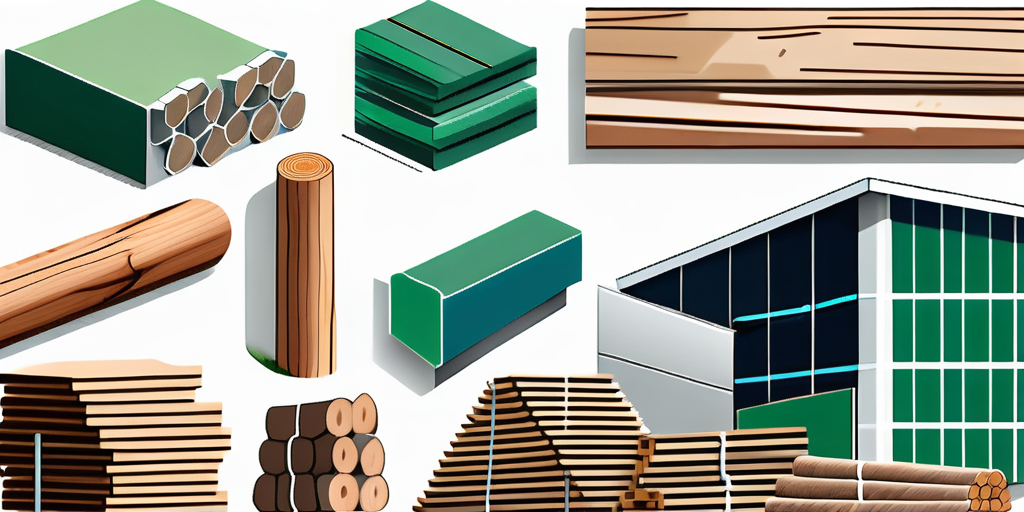
Building a home is one of the most significant investments many people will make in their lifetime. When considering a location like Tennessee National, which offers picturesque landscapes and an inviting community, understanding how to maximize value is essential. This guide will outline key aspects to consider when undertaking a building project in Tennessee National, ensuring your investment pays off in the long run.
Before embarking on your building journey, it's crucial to grasp the dynamics of the real estate market in Tennessee National. The area has seen growth due to its combination of natural beauty and favorable living conditions. With its stunning landscapes, including rolling hills and picturesque lakes, Tennessee National offers a serene lifestyle that appeals to both retirees and young families alike. The blend of rural charm and suburban convenience makes it a sought-after destination for those looking to escape the hustle and bustle of city life.

Several elements can affect the property value in Tennessee National. Accessibility to major highways, local amenities, and community features play a significant role in determining the worth of your investment. Moreover, market trends such as the demand for housing and the economic landscape of the region can lead to fluctuations in property values. As more people discover the allure of Tennessee National, the competition for available properties has intensified, driving prices upward in certain areas.
It’s also wise to keep an eye on nearby developments or community plans that may influence future growth. For instance, new schools or shopping centers can enhance the desirability of your location, thus increasing property values over time. Additionally, the local government's initiatives to improve infrastructure and public services can further bolster the market, making it an opportune time for potential buyers to invest in this thriving community.
Your chosen location can either elevate or impede your property's value. Tennessee National boasts diverse neighborhoods, each with unique qualities, making it essential to evaluate your options thoroughly. Proximity to recreational lakes, parks, and scenic views can significantly enhance appeal. Many neighborhoods also offer a variety of outdoor activities, from hiking and fishing to biking trails, which cater to an active lifestyle and attract nature enthusiasts.
Furthermore, the social environment plays a role in property values. A neighborhood known for its friendly community, low crime rates, and public amenities tends to attract families and individuals who value quality of life. Community events, such as farmers' markets and seasonal festivals, foster a sense of belonging and connection among residents, further enhancing the area's attractiveness. As you explore the neighborhoods in Tennessee National, consider not only the physical attributes of the properties but also the vibrant community spirit that can make a house feel like a true home.
The planning phase is critical when aiming to maximize value. Thoughtful design and functionality play a significant role in how potential buyers or even your future self perceive the property.
Architectural style can impact both aesthetics and marketability. In Tennessee National, styles that incorporate local culture and environment, such as Craftsman or modern farmhouse designs, might appeal to prospective buyers. Researching popular trends can aid in selecting a design that resonates with the potential market.
It’s also crucial to ensure that your architectural choice fits within the context of its surroundings, enhancing its charm rather than clashing with the established character of the neighborhood. For instance, a Craftsman-style home with its signature overhanging eaves and exposed rafters can complement the natural beauty of Tennessee’s landscapes, while a modern farmhouse can evoke a sense of nostalgia and warmth that resonates with many families looking to settle in the area. By considering the local architectural vernacular, you can create a home that not only stands out but also feels like a natural extension of its environment.
As sustainability becomes a higher priority for many homebuyers, incorporating energy-efficient features can significantly boost your home’s market value. Energy-efficient windows, quality insulation, and smart home technology can lead to long-term savings, making your property more appealing.
Additionally, homes designed with environmental consciousness in mind may qualify for various green home certifications. Such credentials can further bolster your property's attractiveness in a competitive market. Beyond just the immediate benefits, energy-efficient homes often provide a sense of security against rising utility costs, which is an attractive proposition for potential buyers. Moreover, integrating renewable energy sources, such as solar panels, not only enhances the home’s eco-friendliness but can also serve as a selling point that distinguishes your property from others. As buyers become increasingly aware of their carbon footprint, the demand for homes that prioritize sustainability will likely continue to grow.
Understanding the regulations and permits required for building is vital for a smooth project. Tennessee National has specific zoning laws and permit requirements that must be adhered to, and failing to comply can lead to delays or even fines.

Zoning laws dictate how land can be used within a jurisdiction. Before proceeding with your building project, consult with local authorities to determine the zoning requirements for your property. Knowing whether your intended use, such as residential or commercial, complies with local rules can prevent future complications.
Being aware of restrictions regarding height, density, and land usage will save time and money. Consider hiring a local real estate attorney or an experienced real estate agent for advice on navigating these regulations. Additionally, understanding the nuances of zoning overlays, which can impose additional requirements or restrictions, is crucial. For instance, some areas may have historic preservation overlays that limit changes to existing structures or dictate architectural styles, requiring careful consideration during the planning stages.
Obtaining necessary permits is another crucial step. Building permits ensure that the project meets local construction codes and safety standards. The process can vary in complexity but is an essential step to avoid potential legal issues later on.
To streamline the permit application process, ensure your plans are thorough and meet all requirements outlined by the local building department. Consider working with a professional familiar with these processes to expedite approvals. Furthermore, it is beneficial to stay informed about any changes to building codes or regulations that may arise during your project. Engaging with local building officials early in the process can provide insights into potential challenges and help you adjust your plans accordingly. This proactive approach not only enhances the likelihood of a smooth approval process but also fosters a positive relationship with local authorities, which can be advantageous for future projects.
The materials you choose for your build will heavily influence both the immediate appeal of your property and its long-term durability. Striking a balance between quality and cost is a common challenge for many builders.

When it comes to selecting materials, prioritize high-quality items where durability and appearance matter most. This includes essentials such as roofing, windows, and foundational materials that will not only enhance the look of your home but also extend its lifespan. Investing in energy-efficient windows, for example, can significantly reduce heating and cooling costs over time, making them a wise long-term investment. Additionally, choosing materials that are resistant to weathering and wear can save you money on repairs and replacements in the future.
Investing in high-caliber kitchen and bathroom fixtures will also pay dividends in terms of attractiveness. A beautiful kitchen and bathroom can significantly increase interest and lead to higher offers when selling your property. Opting for stylish yet durable countertops made from quartz or granite can elevate the aesthetic of your space while providing a resilient surface that withstands the rigors of daily use. Furthermore, incorporating smart technology into these areas, such as touchless faucets or energy-efficient appliances, not only enhances functionality but also appeals to modern buyers looking for convenience and innovation.
While quality is essential, numerous cost-saving strategies can help keep your budget in check. Bulk purchasing materials can often result in discounts and shopping during off-peak times can lead to savings as well. Additionally, establishing relationships with local suppliers may provide opportunities for exclusive deals or early access to sales, allowing you to maximize your purchasing power without sacrificing quality.
Consider evaluating alternative materials that mimic the appearance of high-end options but come at a lower cost. For instance, laminate flooring can offer the aesthetic of hardwood at a fraction of the price, providing significant savings while still enhancing the overall look of your home. Another option is to explore recycled or reclaimed materials, which not only contribute to sustainability but can also add unique character to your build. Items like reclaimed wood beams or recycled glass tiles can serve as stunning focal points, all while being budget-friendly alternatives to new materials. By being resourceful and creative in your selections, you can achieve a high-end look without the high-end price tag.
The construction team you hire will determine how smoothly your building process goes. Investing time in selecting a qualified contractor is essential to ensure your project remains on budget and on schedule.
When searching for a construction company, analyze their reputation, experience, and past projects. It's crucial to look for companies with proven success in the type of project you are planning.
Reading reviews and asking for references can provide insights into their reliability and the quality of their work. Also, consider visiting completed homes they’ve built to gauge the design and construction quality firsthand. Pay attention to the materials used and the craftsmanship involved; this can often reveal the contractor's commitment to excellence. Additionally, don’t overlook the importance of their communication style—how responsive they are to inquiries can be a strong indicator of how they will handle your project.
Once you've found potential contractors, don’t hesitate to negotiate costs. Request detailed estimates from multiple providers to compare pricing structures. Be transparent about your budget constraints and see if there is flexibility in their proposals.
Additionally, a good contractor will communicate effectively and offer alternatives that can help save costs without compromising quality. Establishing a solid relationship from the beginning can lead to a smoother and more efficient building process. Consider discussing timelines and potential delays upfront, as this can help set realistic expectations for both parties. Moreover, inquire about their subcontractors and suppliers, as the quality of these partnerships can significantly impact the overall project outcome.
In conclusion, maximizing value when building at Tennessee National requires a well-thought-out approach that includes understanding the real estate market, careful planning, and collaboration with experienced professionals. By focusing on key areas outlined in this article, you can ensure that your investment brings beauty and comfort to your life while standing the test of time.